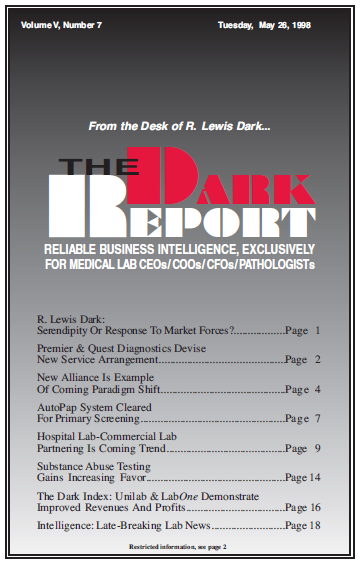CEO SUMMARY: This strategic alliance represents a fundamental shift within the clinical laboratory industry. It is a response to market forces which should not be ignored by laboratory executives and pathologists anywhere in the country. Whether the alliance succeeds or fails, it will launch the laboratory industry into new directions. IT WILL TAKE SEVERAL YEARS …
New Alliance Is Example Of Coming Paradigm Shift Read More »
To access this post, you must purchase The Dark Report.


